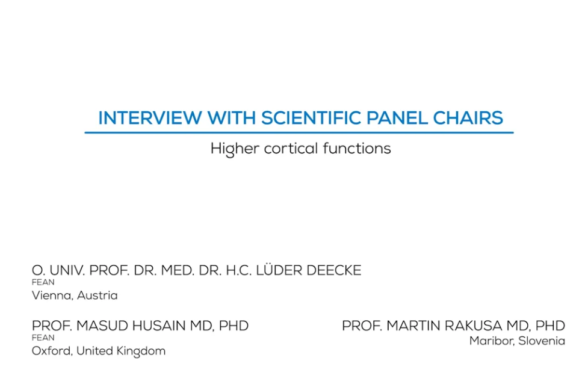Neurology residents and research fellows are profoundly contributing to the functioning of the healthcare system and academia. However, coping on a daily basis with the onerous requirement of residency programmes, long working hours and research activities could lead in some cases to professional dissatisfaction and have an impact on work-life balance with consequences on personal and workplace well-being, thus participating to an increased risk of burnout.
Burnout is a multi-faceted syndrome characterised by: (1) emotional exhaustion, a state in which there is a lack of interest and enthusiasm for daily work, (2) cynicism/depersonalisation: an attitude in which patients are treated as objects, and these dimensions can be accompanied by (3) a sense of low personal accomplishment and poor efficacy (Maslach C, Ann Rev Psychol 2001).
Physicians in burnout are chronically tired, cynical, and discouraged. They may experience a wide range of work-life issues including medical errors (Krasner MS, JAMA 2009), conflicts, poor social life interactions, as well as an increased risk of depression and suicide (Shanafelt TD, Ann Intern Med 2002). The prevalence of burnout is particularly high among US neurology residents as compared with specialists and other physicians (Levin KH, Neurology 2017). However, the impact of burnout prevalence on Neurology residents in Europe is not yet explored.
In this ongoing study led by the Resident and Research Fellow Section (RRFS), we aim to investigate the prevalence of burnout, its contributing factors and as well as their impact on the professional and social life of neurology residents and research fellows in Europe. A total of 1403 European Academy Neurology (EAN) RRFS members are being surveyed using standardised measures of burnout, work-related fatigue, occupational well-being, job satisfaction, social support, life changes and their impact on professional and social life from September 1st to December 31st, 2020.
The spectrum of burnout can be substantially different in each individual ranging from daily tiredness to a more serious clinical presentation requiring treatment.
The heterogeneity in the contributing factors and individual physicians’ resources results in this complex spectrum in which only one dimension is affected without fully satisfying the criteria for burnout (Leiter MP, Burnout Research 2016): Overextended (high emotional exhaustion), Disengaged (high cynicism) and Ineffective (low efficacy). These latent burnout profiles require dedicated interventions based on their characteristics. For example, Individuals with an Overextended profile are experiencing work overload (Exhaustion) and may benefit from workload adjustments, conversely Disengaged individuals are rather disconnected from their relationship with the patient and have problematic relationships with coworkers, therefore the approach will be different and will not take advantage from a workload adjustment.
This study will shed light on the workplace well-being of neurology residents and research fellows in Europe and highlight potential factors contributing to their work-related distress, opening up novel strategies to mitigate them in the future.













